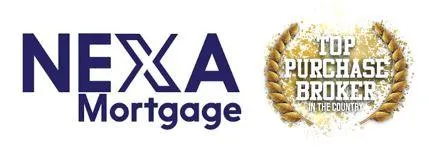The Mortgage Process
What to Expect
Step 1: Get Pre-Approved (before you shop)
What it is: This is the first and most critical step. You provide a loan officer with your financial documents (pay stubs, W-2s, bank statements, tax returns). They will perform a full credit check and have an underwriter verify your income and assets.
Why you do it: You get a pre-approval letter stating the exact loan amount you are approved for. This proves to sellers you are a serious buyer and gives you a firm budget to shop with. A pre-approval is much stronger than a "pre-qualification," which is just a rough estimate based on numbers you provide.
Step 2: Go Home Shopping
What it is: With your pre-approval letter in hand, you and your real estate agent can confidently look for homes at or below your approved price.
Why you do it: You know exactly what you can afford because of your pre-approval with your lender, so you don't waste time looking at homes outside your budget.
Step 3: Make an Offer & Get It Accepted
What it is: When you find a home, your agent will write a purchase offer. You will submit your pre-approval letter with the offer to show the seller you are financially cleared to make the purchase.
Why you do it: Once the seller accepts your offer, you have an "executed contract." This is the key that unlocks the next phase of the mortgage process.
Step 4: Initial Disclosures from Mortgage Company
What it is: You send the executed purchase contract to your loan officer. They will lock in your interest rate and have you e-sign the formal loan application (often called the "1003") and a package of initial disclosures.
Why you do it: This officially converts your "pre-approval" into a "live" loan file for that specific property. Your lender will issue a Loan Estimate (LE) within three days, which details all your loan terms and estimated closing costs.
Step 5: Loan Processing & Appraisal
What it is: A loan processor gathers all remaining documents from you (like updated pay stubs) and orders the appraisal and title search.
Why you do it:
Appraisal: The lender needs an independent appraiser to confirm the home's value is equal to or greater than your offer price.
Title Search: A title company checks the property's history to ensure there are no other claims or liens on it, confirming the seller has the legal right to sell it to you.
Step 6: Underwriting
What it is: This is the main "waiting" period. A professional underwriter reviews your entire file: your income, your assets, your credit, the appraisal, and the title report.
Why you do it: The underwriter's job is to give the final "yes" or "no." They will often issue a Conditional Approval, which means you are approved as long as you provide a few final items (e.g., "a recent bank statement" or "a letter of explanation for a large deposit").
Step 7: Clear to Close (CTC)
What it is: Once you've submitted the final items, the underwriter gives the "Clear to Close." This is the green light everyone has been working toward.
Why you do it: Your loan is fully approved. The lender's legal department can now prepare the final loan documents to be sent to the title company for you to sign.
Step 8: Pre-Closing Docs
What it is: By law, you must receive your Closing Disclosure (CD) at least three business days before your closing date.
Why you do it: This is your final, official statement of loan terms and closing costs. You must review it carefully and compare it to your Loan Estimate to ensure there are no surprises.
Step 9: The Final Walk-Through
What it is: In the 24 hours before closing, you walk through the house one last time.
Why you do it: You are ensuring the property is in the same condition as when you made the offer and that any agreed-upon repairs have been completed.
Step 10: Closing Day
What it is: You go to the title company (or attorney's office) to sign the final loan and title documents. You will need to bring your ID, Social Security card, and a cashier's check (or wire transfer) for your down payment and closing costs. (Note: there may be online documents the lender wants you to esign that morning before going to the title company to sign the final closing documents.)
Why you do it: After you sign everything, the lender "funds" the loan by sending the money to the title company. The title company pays the seller, and you get the keys. Congratulations, you are now a homeowner!
Why Choose NEXA Mortgage?
There Are Many Lenders, So Why Choose Us?
Broker lenders have lower overhead, provide better rates, reduced closing costs, and personalized lending solutions designed around your goals.

Hundreds of Loan Programs to Choose From
Including Downpayment Assistance

Upload All Documents Online
***Virtual Closing option (close in your PJ's)
What documents do I need?
W2's or 1099's
- 2 most recent consecutive years worth of W2's
- If self-employed, we also need your 1040 tax returns with all schedules for most recent two consecutive years.
- If 1099 employee, 2 years of 1099's for a 1099 Loan (10% expense factor & 6 months reserves required)
2 months Bank Statements (no NSF's)
2 most recent consecutive bank statements for all accounts. If you are doing a Bank Statement Loan, then we need most recent 12 months of Business Bank Statements and Personal Bank Statements.
30 Days Paystubs
One months worth of paystubs, plus your end of year December paystubs for most recent consecutive 2 years showing your YTD earnings, bonuses, overtime, etc.
Driver's License
Must be for the address where you currently live and cannot be expired
Insurance Agent's Name & Number
We need this as soon as possible so that we can have an accurate Homeowners insurance amount for your disclosures and paperwork.
12 Months Rental or Mortgage History
If you are renting, we either need cancelled checks for 12 months or written verification from your landlord. If you currently have a mortgage, we can verify this information with your current mortgage company.
Homeowners Association (HOA) Info (if applicable)
If there is an HOA connected to the subject property, we must have written verification of amount and payment history.


Contact Us
Kelly Fest
NMLS # 202374
972-854-3270
NEXA Mortgage LLC
https://nexamortgage.com
NMLS #1660690
AZMB #0944059
Corporate Office
5559 S Sossaman Rd
Bldg # 1 Ste # 101
Mesa, AZ 85212
